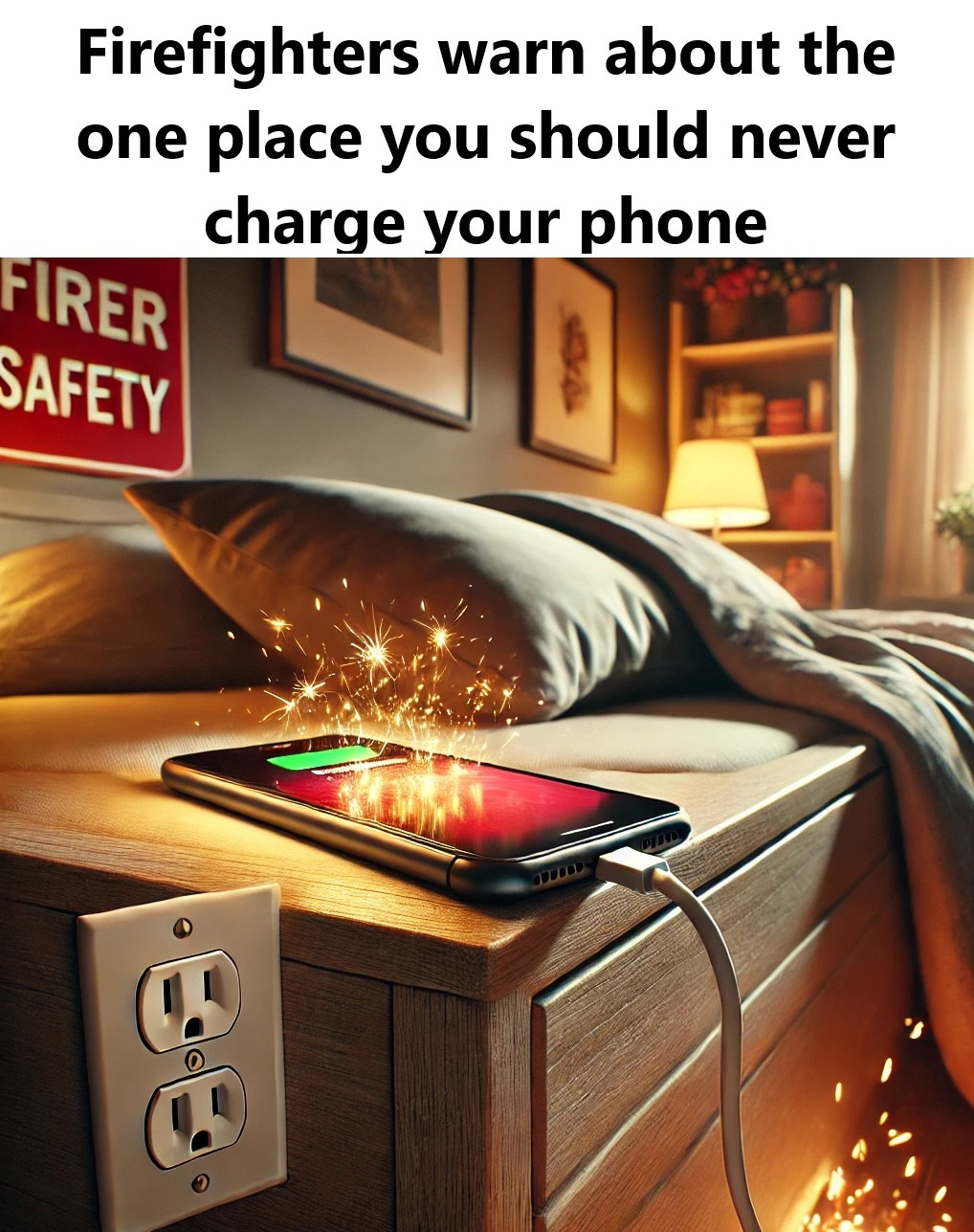ADVERTISEMENT
In today’s digital age, smartphones have become an indispensable part of our lives, serving as our primary means of communication, entertainment, and even work. However, with the convenience of having a mini-computer in our pockets comes the responsibility of ensuring its safe use. One of the most overlooked aspects of smartphone safety is how and where we charge our devices. Charging a phone might seem like a mundane task, but it can pose significant risks if not done properly. Firefighters across the country are raising alarms about the potential hazards associated with improper charging practices, urging the public to be more cautious.
Understanding the Risks Associated with Charging Devices
Charging devices, particularly smartphones, involves the transfer of electrical energy, which can generate heat. If not managed properly, this heat can lead to overheating, battery damage, or even fires. The risk is exacerbated by the use of low-quality chargers, damaged cables, or charging in environments that do not allow for proper heat dissipation. Additionally, lithium-ion batteries, commonly used in smartphones, are sensitive to temperature extremes and can become volatile if they are overcharged or physically damaged.
Common Places People Charge Their Phones
People often charge their phones in a variety of locations, from their homes and offices to public places like cafes and airports. Common charging spots include nightstands, kitchen counters, office desks, and even cars. While these locations might seem harmless, the safety of charging in these places depends on several factors, including the quality of the charging equipment, the condition of the phone, and the surrounding environment.
The One Place You Should Never Charge Your Phone
Firefighters have identified one particularly hazardous location for charging phones: under a pillow or on a bed. Charging a phone in bed, especially under a pillow, can trap heat and prevent proper ventilation, leading to overheating. The combination of heat, flammable bedding materials, and prolonged charging can create a perfect storm for a potential fire hazard. This practice is particularly common among teenagers and young adults who charge their phones overnight while sleeping.
Continued on the next page …..
ADVERTISEMENT
